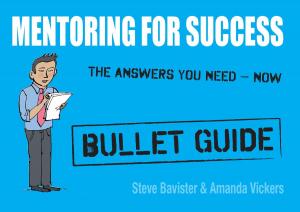Scapegoats, Shambles and Shibboleths
The Queen's English from the King James Bible
Nonfiction, Religion & Spirituality| Author: | Martin Manser | ISBN: | 9781848948525 |
| Publisher: | John Murray Press | Publication: | October 29, 2009 |
| Imprint: | Hodder & Stoughton | Language: | English |
| Author: | Martin Manser |
| ISBN: | 9781848948525 |
| Publisher: | John Murray Press |
| Publication: | October 29, 2009 |
| Imprint: | Hodder & Stoughton |
| Language: | English |
`The fruit of his labours?, Martin Manser?s SCAPEGOATS, SHAMBLES AND SHIBBOLETHS is a delightful book for all who adore the English language. `In the twinkling of an eye? we learn that many of our most familiar phrases are taken straight from the King James Version of the Bible. Far from being `holier than thou?, it seems we quote from the Bible without even realising!
Martin Manser explains in detail what it is to be `the apple of someone's eye? . . . `No modern physiology book would put it like this, but in the past the pupil of the eye was referred to as "the apple". After all, it was shaped like one. In addition, because it was recognised to be the most important part of the eye it was a symbol for all things precious. The most valuable part of a highly valued organ of the body. Dotted around the Bible the phrase therefore represents anything that is of great worth - whether it is the law of God in Proverbs 7 v 2, the people of Israel found and nurtured in the desert or as an individual on the receiving end of divine care.'
A quirky present, SCAPEGOATS SHAMBLES AND SHIBBOLETHS will amuse and entertain as well as shed a thought-provoking light on the background to our rich and varied language.
`The fruit of his labours?, Martin Manser?s SCAPEGOATS, SHAMBLES AND SHIBBOLETHS is a delightful book for all who adore the English language. `In the twinkling of an eye? we learn that many of our most familiar phrases are taken straight from the King James Version of the Bible. Far from being `holier than thou?, it seems we quote from the Bible without even realising!
Martin Manser explains in detail what it is to be `the apple of someone's eye? . . . `No modern physiology book would put it like this, but in the past the pupil of the eye was referred to as "the apple". After all, it was shaped like one. In addition, because it was recognised to be the most important part of the eye it was a symbol for all things precious. The most valuable part of a highly valued organ of the body. Dotted around the Bible the phrase therefore represents anything that is of great worth - whether it is the law of God in Proverbs 7 v 2, the people of Israel found and nurtured in the desert or as an individual on the receiving end of divine care.'
A quirky present, SCAPEGOATS SHAMBLES AND SHIBBOLETHS will amuse and entertain as well as shed a thought-provoking light on the background to our rich and varied language.















